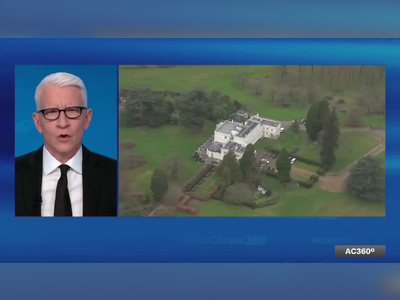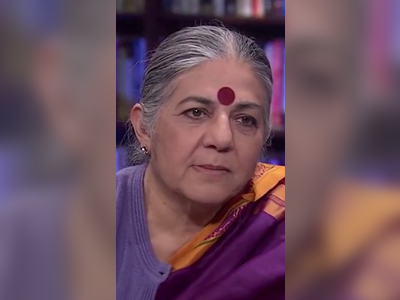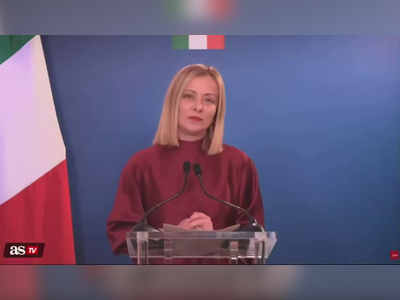
One in four NHS doctors tired to the point of impairment, survey finds
Exclusive: Patients suffering harm as a result of doctors being deprived of sleep during pandemic, says report
One in four doctors in the NHS are so tired that their ability to treat patients has become impaired, according to the first survey to reveal the impact of sleep deprivation on medics during the coronavirus pandemic.
Growing workloads, longer hours and widespread staff shortages are causing extreme tiredness among medics, leading to memory problems and difficulty concentrating, according to the report by the Medical Defence Union (MDU), which provides legal support to about 200,000 doctors, nurses, dentists and other healthcare workers.
The survey of more than 500 doctors across the UK, carried out within the past month and seen by the Guardian, uncovered almost 40 near misses as a direct result of exhaustion. In at least seven cases, patients actually sustained harm.
Despite encouraging signs the Omicron wave may be fading, doctors admitted the constant pressure of the past 22 months spent fighting coronavirus on the frontline was taking a toll on their technical skills and even their ability to make what should be straightforward medical decisions. Medics admitted for the first time sleep deprivation was causing real harm to patients in the NHS.
Almost six in 10 doctors (59%) reported their sleep patterns had worsened during the pandemic. More than a quarter (26%) of medics admitted being so tired that their ability to treat patients was “impaired”. Of these, one in six (18%) said a patient was harmed or a near miss occurred as a result.
One described how their patient collapsed after being prescribed penicillin, something they had previously told the same doctor they were allergic to. The doctor blamed a “perfect storm” of “chronic fatigue” and “an unmanageable workload”. Another said widespread staff shortages meant “mistakes are more frequent by the end of the day”.
“Doctors and their healthcare colleagues are running on empty,” said Dr Matthew Lee, the chief executive of the MDU. “Our members have come through a period of immense pressure caused by the pandemic and it is affecting all aspects of their life, including sleep patterns.”
Fatigue increased the risk of mistakes and harm to patients’ and doctors’ health, he said. “In our survey, side-effects doctors reported due to sleep deprivation included poor concentration (64%), decision-making difficulties (40%), mood swings, (37%) and mental health problems (30%).”
The MDU survey of medics within the last month had 532 respondents including hospital doctors, GPs, consultants, specialists and junior doctors. Nearly one in 10 (9%) medics said they felt sleep deprived at work on a daily basis. A further 28% reported feeling sleep deprived every week. More than one in six (17%) said sleep deprivation was affecting their technical abilities when caring for patients.
Dr Michael Farquhar, a consultant in sleep medicine at Evelina London children’s hospital, part of Guy’s and St Thomas’ NHS foundation trust, said that while fatigue among NHS staff had been a concern for some time, the pandemic had “exacerbated” the problem, to the point where it had become a “critical” issue, impacting patient safety and staff wellbeing.
“Even before the pandemic hit, fatigue was a huge issue in an NHS which is acknowledged to have been under-resourced over the last decade,” he said. “Dealing with the impact of Covid has exacerbated significant issues which already existed, with many healthcare professionals ‘running on fumes’.
“When doctors are sleep deprived they can lose insight, meaning they can persevere when doing the wrong thing. Clinicians are more likely to make errors in simple repetitive tasks, such as calculating medication, and our ability to process, retain and analyse information suffers, too, which means it can take longer to assess a patient’s symptoms and reach a diagnosis.
“Fatigue has been a major issue in the NHS for a long time … and with staff now further exhausted by two years of the pandemic, it is a critical issue for both staff wellbeing and patient safety.”
In total, 92% of the medics surveyed worked more additional hours than they were rostered or contracted to do, with more than half (52%) doing between five and 20 extra hours a week on average. Nearly one in three (29%) said they got no breaks during a working day.
“Doctors should recognise when they need to take a break but equally, they need to be working in an adequately resourced environment in order to take one,” said Lee. “In our survey, three in 10 doctors got no breaks at all during the working day despite many working long shifts. In addition, 21% didn’t have anywhere to go such as a staff room, or quiet area, to take a break.”
The MDU said the government and NHS organisations must do more to ensure there were adequate resources in place to allow doctors to take regular breaks.
Lee added: “Taking regular breaks is vital in the interests of doctors and their patients. Pressures on frontline healthcare workers are likely to get worse for doctors in the coming weeks. At a time of considerable staff absence in the NHS it is more important than ever that those staff who are fit to work are properly supported so they can care for patients safely.”
Last week, after a survey by the Royal College of Physicians (RCP) found that one in five doctors felt overwhelmed by work on a daily basis, Danny Mortimer, the chief executive of NHS Employers and deputy chief executive of the NHS Confederation, said: “Staff shortages and an exhausted workforce present the greatest challenge to the recovery of our NHS and the return of safe, high-quality health services for all.”
A government spokesperson said: “Patient safety is paramount and NHS staff continue to go above and beyond to ensure people get the treatment they need. We are providing record investment to support the sector and tackle backlogs, and additional health and wellbeing support has been provided to staff.
“There are record numbers of doctors and nurses working in the NHS with over 4,800 more doctors and over 10,900 more nurses compared to last year. We are committed to growing the workforce, with 50,000 more nurses by the end of this parliament.”
Growing workloads, longer hours and widespread staff shortages are causing extreme tiredness among medics, leading to memory problems and difficulty concentrating, according to the report by the Medical Defence Union (MDU), which provides legal support to about 200,000 doctors, nurses, dentists and other healthcare workers.
The survey of more than 500 doctors across the UK, carried out within the past month and seen by the Guardian, uncovered almost 40 near misses as a direct result of exhaustion. In at least seven cases, patients actually sustained harm.
Despite encouraging signs the Omicron wave may be fading, doctors admitted the constant pressure of the past 22 months spent fighting coronavirus on the frontline was taking a toll on their technical skills and even their ability to make what should be straightforward medical decisions. Medics admitted for the first time sleep deprivation was causing real harm to patients in the NHS.
Almost six in 10 doctors (59%) reported their sleep patterns had worsened during the pandemic. More than a quarter (26%) of medics admitted being so tired that their ability to treat patients was “impaired”. Of these, one in six (18%) said a patient was harmed or a near miss occurred as a result.
One described how their patient collapsed after being prescribed penicillin, something they had previously told the same doctor they were allergic to. The doctor blamed a “perfect storm” of “chronic fatigue” and “an unmanageable workload”. Another said widespread staff shortages meant “mistakes are more frequent by the end of the day”.
“Doctors and their healthcare colleagues are running on empty,” said Dr Matthew Lee, the chief executive of the MDU. “Our members have come through a period of immense pressure caused by the pandemic and it is affecting all aspects of their life, including sleep patterns.”
Fatigue increased the risk of mistakes and harm to patients’ and doctors’ health, he said. “In our survey, side-effects doctors reported due to sleep deprivation included poor concentration (64%), decision-making difficulties (40%), mood swings, (37%) and mental health problems (30%).”
The MDU survey of medics within the last month had 532 respondents including hospital doctors, GPs, consultants, specialists and junior doctors. Nearly one in 10 (9%) medics said they felt sleep deprived at work on a daily basis. A further 28% reported feeling sleep deprived every week. More than one in six (17%) said sleep deprivation was affecting their technical abilities when caring for patients.
Dr Michael Farquhar, a consultant in sleep medicine at Evelina London children’s hospital, part of Guy’s and St Thomas’ NHS foundation trust, said that while fatigue among NHS staff had been a concern for some time, the pandemic had “exacerbated” the problem, to the point where it had become a “critical” issue, impacting patient safety and staff wellbeing.
“Even before the pandemic hit, fatigue was a huge issue in an NHS which is acknowledged to have been under-resourced over the last decade,” he said. “Dealing with the impact of Covid has exacerbated significant issues which already existed, with many healthcare professionals ‘running on fumes’.
“When doctors are sleep deprived they can lose insight, meaning they can persevere when doing the wrong thing. Clinicians are more likely to make errors in simple repetitive tasks, such as calculating medication, and our ability to process, retain and analyse information suffers, too, which means it can take longer to assess a patient’s symptoms and reach a diagnosis.
“Fatigue has been a major issue in the NHS for a long time … and with staff now further exhausted by two years of the pandemic, it is a critical issue for both staff wellbeing and patient safety.”
In total, 92% of the medics surveyed worked more additional hours than they were rostered or contracted to do, with more than half (52%) doing between five and 20 extra hours a week on average. Nearly one in three (29%) said they got no breaks during a working day.
“Doctors should recognise when they need to take a break but equally, they need to be working in an adequately resourced environment in order to take one,” said Lee. “In our survey, three in 10 doctors got no breaks at all during the working day despite many working long shifts. In addition, 21% didn’t have anywhere to go such as a staff room, or quiet area, to take a break.”
The MDU said the government and NHS organisations must do more to ensure there were adequate resources in place to allow doctors to take regular breaks.
Lee added: “Taking regular breaks is vital in the interests of doctors and their patients. Pressures on frontline healthcare workers are likely to get worse for doctors in the coming weeks. At a time of considerable staff absence in the NHS it is more important than ever that those staff who are fit to work are properly supported so they can care for patients safely.”
Last week, after a survey by the Royal College of Physicians (RCP) found that one in five doctors felt overwhelmed by work on a daily basis, Danny Mortimer, the chief executive of NHS Employers and deputy chief executive of the NHS Confederation, said: “Staff shortages and an exhausted workforce present the greatest challenge to the recovery of our NHS and the return of safe, high-quality health services for all.”
A government spokesperson said: “Patient safety is paramount and NHS staff continue to go above and beyond to ensure people get the treatment they need. We are providing record investment to support the sector and tackle backlogs, and additional health and wellbeing support has been provided to staff.
“There are record numbers of doctors and nurses working in the NHS with over 4,800 more doctors and over 10,900 more nurses compared to last year. We are committed to growing the workforce, with 50,000 more nurses by the end of this parliament.”











